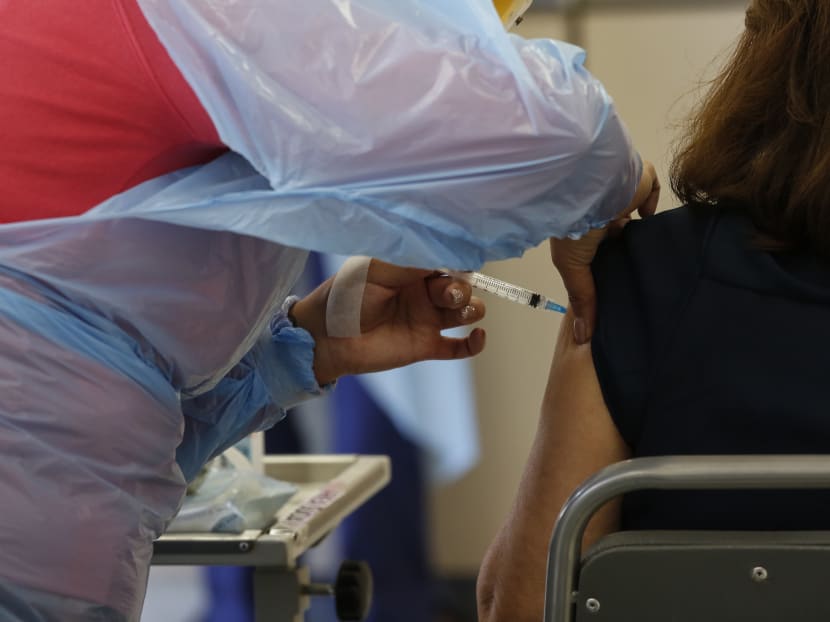Singapore played 'key role' in efforts to ensure equal access to Covid-19 vaccines to all countries: Vivian Balakrishnan
SINGAPORE — Singapore has played a “key role” in establishing a global effort to ensure equal access to Covid-19 vaccines for all countries, said Foreign Affairs Minister Vivian Balakrishnan on Monday (March 1).

Foreign Affairs Minister Vivian Balakrishnan said that Singapore contributed US$5 million (S$6.7 million) to help low-income countries access vaccines through Covax.
SINGAPORE — Singapore has played a “key role” in establishing a global effort to ensure equal access to Covid-19 vaccines for all countries, said Foreign Affairs Minister Vivian Balakrishnan on Monday (March 1).
“We must start with the principle that fair and equitable access to vaccines across the globe is essential,” he said in his Committee of Supply speech for the Ministry of Foreign Affairs (MFA).
As such, Singapore became an “early supporter” of the Covax Facility, which “harmonise(s)” public and private incentives for global vaccine development. Singapore also founded and co-chaired the Friends of the Covax Facility group, to support the facility’s development, he added.
The Covax mechanism will allocate a “certain small amount” of vaccines to self-funded members like Singapore, while 92 low- and lower-middle-income countries will receive subsidised vaccines, he said.
“In a panic, in a crisis, it is actually quite natural for every country to look to secure supplies for themselves first. But we know that the virus knows no borders. Covax’s primary value is in supporting wider access to vaccines. Without it, we would all be collectively worse off,” said Dr Balakrishnan.
He added that Singapore contributed US$5 million (S$6.7 million) to help low-income countries access vaccines through Covax.
“The need for a multilateral approach to fight Covax-19 is therefore self-evident. This virus does not discriminate across language, race, religion or borders. And therefore, it is in our collective interest to help each other.”
WORKING WITH THE INTERNATIONAL COMMUNITY
Although Covid-19 has pushed countries towards shorter supply chains, Dr Balakrishnan stressed the importance of diversifying and deepening Singapore’s trade relationships.
The signing of the Regional Comprehensive Economic Partnership (RCEP) was an “important boost” for trade and economic integration and “reaffirmed the role of free trade for shared prosperity and peace”, he said.
In addition, the Government is enhancing Singapore’s role as a “nexus” for trade, shipping, finance, data and ideas, serving as a transit hub for foreign nationals heading home and crew changes for the maritime industry so that essential supplies can continue to move.
The Government is facilitating Singapore’s economic recovery through negotiating reciprocal green lanes and other safe travel arrangements, he added.
“We have continued to be a paragon of reliability, trustworthiness that we have honoured, at all times, the sanctity of contracts. We have never impounded supplies even when the crisis was deep.”
On climate change, Dr Balakrishnan said that Singapore would continue to work together with the international community to implement the Paris Agreement.
Singapore concluded the Digital Economy Agreements with Australia, Chile and New Zealand, noted Dr Balakrishnan, to help Singapore “move ahead” in the digital economy and ensure that cross-border digital exchanges such as e-payments and data flows are “safe, secure and efficient”.
The Government is also working with the United Nations, Association of Southeast Asian Nations and other platforms to develop and strengthen norms of responsible state behaviour in cyberspace, namely cybersecurity, he said.
In his Committee of Supply speech, Senior Minister of State for Foreign Affairs Chee Hong Tat said that Singapore’s survival is “intrinsically linked” to regional and international peace and stability.
He added that Singapore has been “proactively” sharing its development experience and know-how in areas where it can contribute, for example through the Singapore Cooperation Programme.
“Through these initiatives, we have been able to grow our international network of friends, whilst reinforcing Singapore’s relevance as a constructive and responsible member of international community.
“These friendships, built over many years, have been especially important during times of crisis, like the Covid-19 pandemic.”
HELPING SINGAPOREANS COME HOME
Mr Chee acknowledged that MFA officers, whom he described as “frontline warriors”, went “beyond the call of duty” to assist Singaporeans in distress during the Covid-19 pandemic.
As the pandemic spread, many Singaporeans found themselves stranded overseas. During this period, MFA officers worked with other government agencies, airlines and foreign authorities to bring overseas Singaporeans home, said Mr Chee.
“They have worked under challenging conditions to bring our citizens home and ensure no Singaporean is left behind.” CNA
For more stories like this, visit cna.asia.









